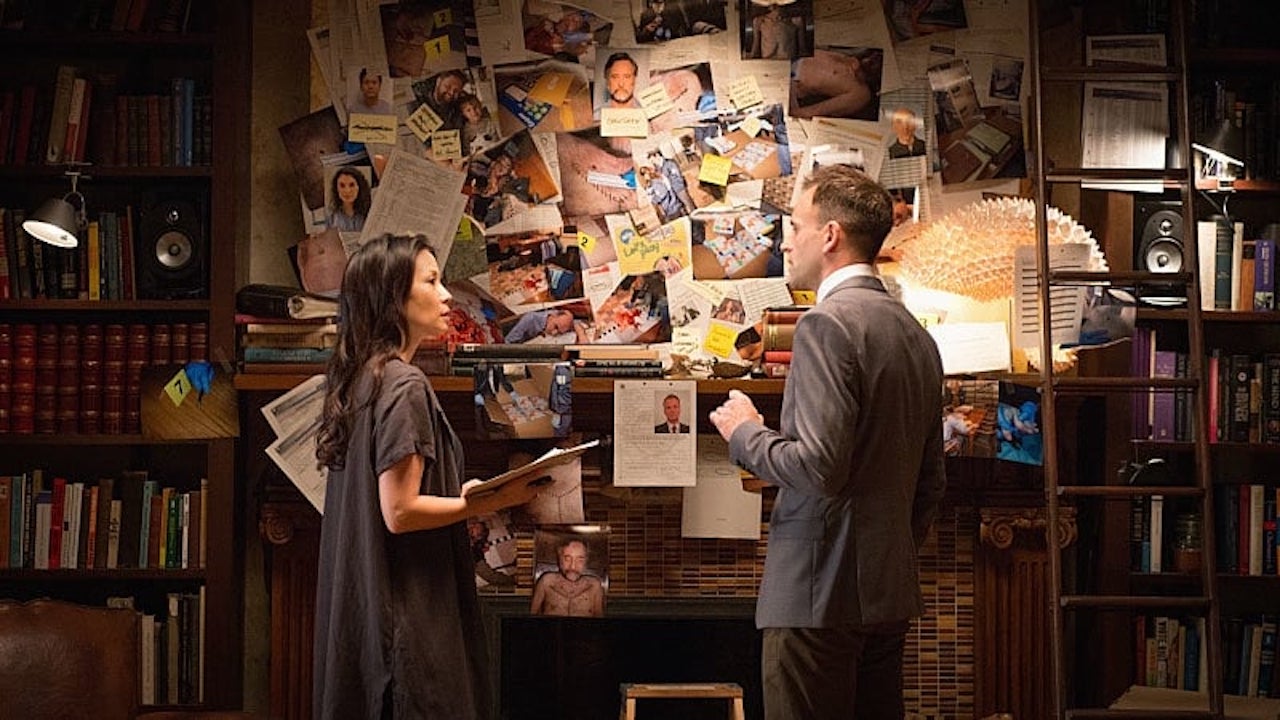Retrospective: 10 years on, Elementary is still an unbeatable portrayal of Holmes and Watson

Reimagining maverick sleuth Sherlock Holmes and his right hand man (*woman) Watson as modern day friends in New York, Elementary still stands as an uncommonly empathetic adaptation of those famous mysteries. Fatima Sheriff reckons the decade-old series deserves a rewatch.
Elementary: Season 1
A decade ago, CBS presented their answer to Sherlock Holmes: the invigorating and charmingly written Elementary, which boldly relocated the iconic detective to New York. Jonny Lee Miller presents a traditional version of Holmes: lithe, expressive, and still the image of white privilege one expects. Lucy Liu as Watson, on the other hand, was a far cry from her predecessors, partly for the obvious reason: Holmes’ “right hand man” was no longer a man.
In shifting gender, creator Robert Doherty removed the undercurrent of homoeroticism that often runs through Sherlock Holmes adaptations, replacing it with something more uncommon: a male-female detective duo who remain platonic partners. Unlike other procedural shows at the time with an element of will-they-won’t-they at the centre, such as Bones and Castle, Elementary brought a wholesome and purely intellectual partnership to the small screen.
Neil Gaiman once gave this advice to writers: “if you can’t think of a reason why your character shouldn’t be a woman, then make them a woman”. Though a rudimentary exercise in diverse screenwriting, this is the thought process that likely created Joan Watson. Elementary goes further, continually questioning the basis of the character—and in doing so, its Watson-Holmes dynamic becomes unparalleled. Considering how House MD took Holmes’ lore into the medical field, why wouldn’t an ex-surgeon have the same eye for detail and a passion for justice as Holmes?
The art of deduction is a marvel that has fascinated audiences for over a century and Sherlock Holmes is no doubt gifted. When Watson in Elementary becomes Holmes’ sober companion and flatmate, she becomes “exposed to his methods”, and he quickly finds her helpful as a sounding board. In the original books, that’s where Watson remains: second fiddle (pun intended) to Holmes’ idiosyncratic genius.
Here the gift is shared, a highly intelligent woman presented with a rejuvenating career path. Joan learns everything from single-stick combat to types of cigarette ash, quickly becoming a formidable detective. But no woman is an island, and soon she has to deal with a questioning family, friends who stage an intervention, and many other hurdles. Coming to terms with her boredom of traditional relationships is a huge step in illustrating how, while she brings Holmes closer to conventionality, the dichotomy of their partnership is give-and-take, and she learns a lot about herself.

Even more fulfilling to watch is a character known for his pride and bafflement when it comes to emotions gradually opening up. Elementary actually addresses Holmes’ narcotic addiction and, fresh out of rehab, follows each step of his recovery—which includes attending meetings with Watson, getting a sponsor, and facing frequent challenges. Holmes is more vulnerable here than in other depictions, facing an uphill struggle to maintain sobriety. Joan becomes one of the few true friends in his wildly chaotic life. Sherlock finds his match in someone unafraid to call him out while also showing unflinching patience in the face of his difficulties.
This development presents a delicate balance of emotion and repression, of eccentricity and sincerity that few actors could muster. But Jonny Lee Miller masters it: his deadpan delivery of ridiculous cases, excitable bouncing at new discoveries, and hard stare in the face of injustice, all emphasising the best characteristics of the beloved character.
The show expands on fun traits—for instance Holmes’ love of animals manifests not just with a beehive on the roof, but the taming of a pair of roosters and most adorably, the shared custody (with Watson) of a tortoise named Clyde. This menagerie alongside a classic mantelpiece murderboard, reflects just how much fun the writers have in bringing Holmes home.

More seriously, Holmes working as a consultant for the NYPD maintains a distance and, crucially, expresses a disdain for institutions. From lawyers to corporations, he has a strong moral compass—taking all opportunities to mock and vilify those who consider themselves superior—and his empathy expands with Watson’s influence. This occurs most significantly in season three, when he takes on another apprentice named Kitty Winter (Ophelia Lovibond).
Though brash at first, it transpires that Kitty is a victim of abuse, in recovery even more so than Holmes—but through the course of his tutelage, like Watson, she finds purpose. In Conan Doyle’s books, her anger features briefly in short story The Illustrious Client: in Elementary the channelling of that rage into her salvation is a very compelling expansion of the canon.

There are countless examples of joyous oddities and heartwarming passion on a case-by-case basis. And while restricted by the “solve every case in 43 minutes” structure, every episode builds up Holmes and Watson as a brilliant partnership. Prima facie, it may seem sacrilegious to transplant these characters to the US, but as Conan Doyle’s fascination comes through in his stories A Study in Scarlet and The Valley of Fear, it’s clear Americans have something to offer the canon.
Every adaptation can deduce that Watson unlocks a humanity in Holmes, and that even the great detective needs therapy. Elementary enacts this untapped potential and takes it to interesting places. Miller and Liu, though initially seeming like an unrealistic internet dream cast, provide hilarious housemate antics and are frankly astonishing in the depth of their portrayals. In the universe of Sherlock Holmes’ screen stories, they are unmatched.

















